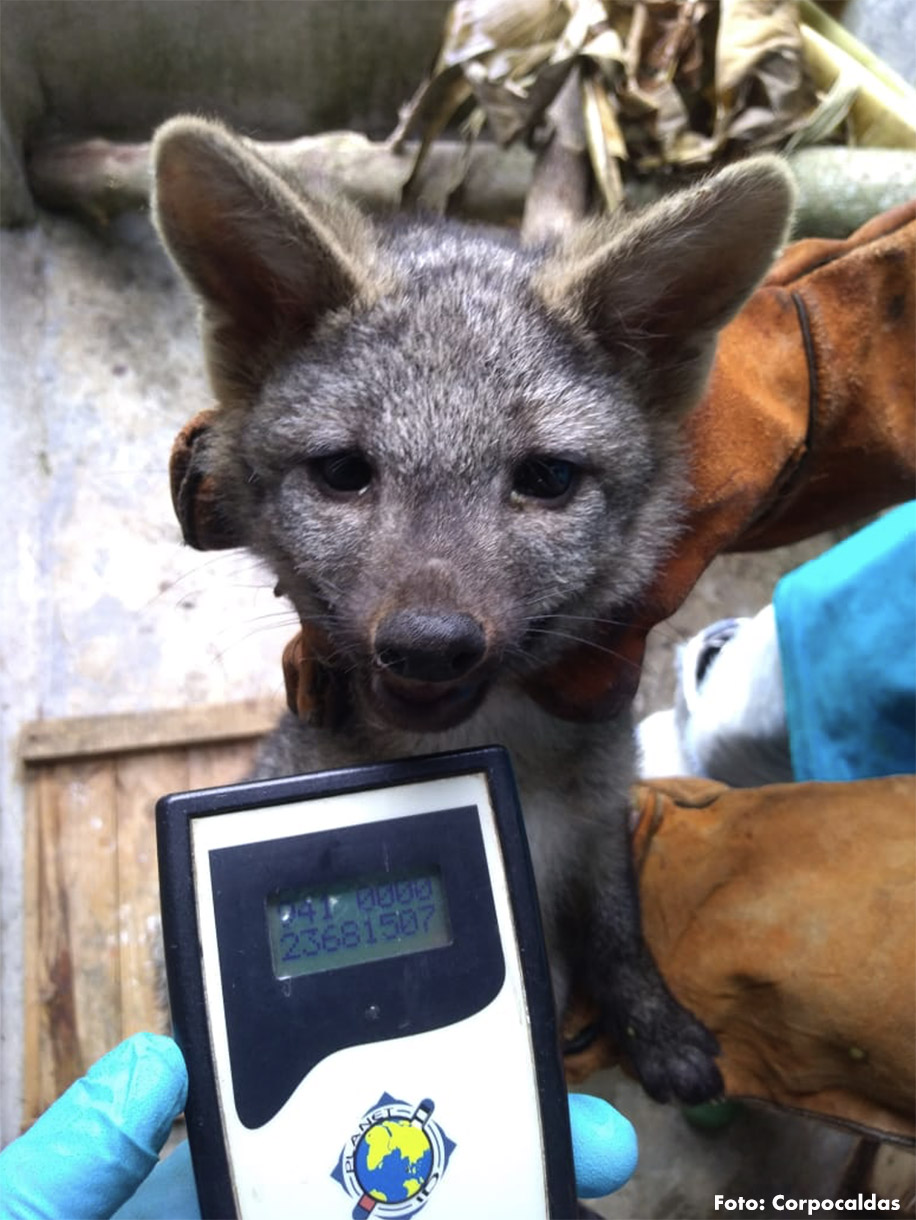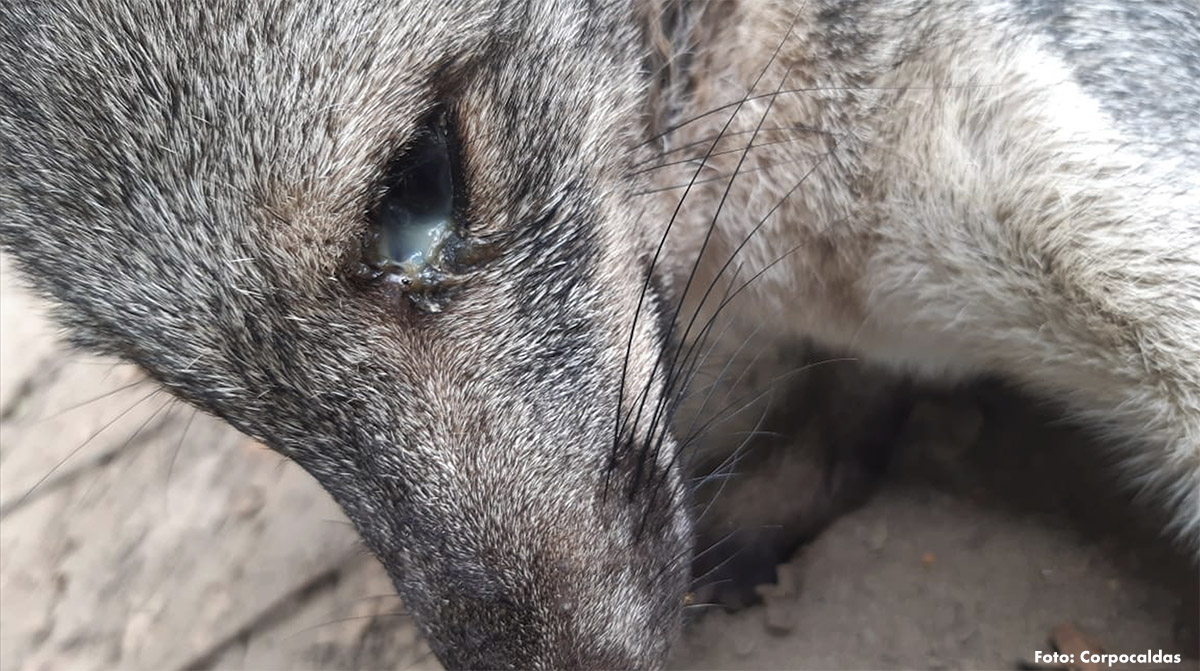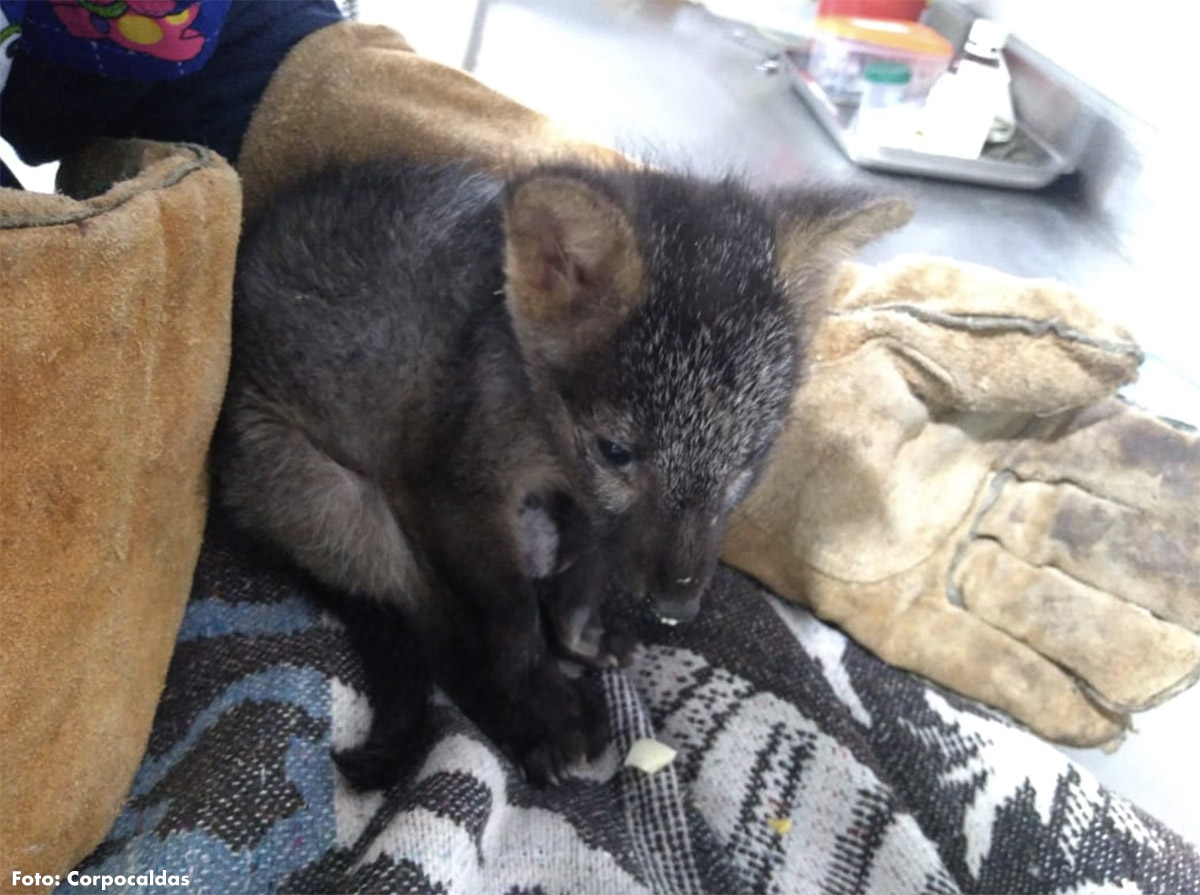In Caldas, a group of foxes contracted Canine Distemper, an infectious and contagious disease, very common among canines. The disease was transmitted by domestic dogs that had been abandoned by their owners. Sixteen mammals of Cerdocyon thous species have already perished during this epidemic. The Wildlife Health and Species Trafficking Program, led by WCS Colombia, exhorts communities to avoid leaving pets behind in rural and urban zones.

We are usually aware of the damage caused to fauna when species are extracted from forests, for example, and placed in urban settings for their illegal trade abroad, or for domestic enjoyment as pets. Yet, wild animals are menaced continuously, even in their own natural habitats. These threats are compounded by the recent growth of abandoned domestic animals which seek refuge into the wild. These abandoned domestic animals find shelter in jungles or native forests, carrying diseases that are potentially harmful to other mammals.
The situation was made evident in November last year in Caldas, when a fox was diagnosed with Canine Distemper, an infectious and very common contagious disease.
Initially, this contagion was considered an isolated case. However, as of June 2020, the virus causing this disease has been detected already in 16 individuals of the species Cerdocyon thous, in the municipalities of Belalcázar, San José, Risaralda, Manizales and Palestina. The affected foxes were taken to the Centro de Atención, Valoración y Rehabilitación de Fauna Silvestre Montelindo (Montelindo is a Center for Fauna Assistance, Appraisal and Rehabilitation) under CORPOCALDAS (the Regional Environmental Authority).
It has been established that foxes were infected by sick dogs which were formerly pets and had been abandoned by their owners without any apparent reason. Many of these animals are still roaming the countryside, spreading this disease and other pathogenic agents.
Oscar Ospina, the coordinator of CORPOCALDAS’ Wildlife Office, explains that distemper is easily transmissible: “We reject bites or fights as a motive for transmission, because there is resistance between dogs and foxes and, when they meet, they choose to flee. We presume that one of the dogs that entered the forest produced secretions. Since foxes are as territorial as dogs, they detected the dog’s strange odor, identified the fluid, smelled it and this resulted in immediate contamination.” This occurs because the contagion agent is spread through the air, through droplets of secretions and excretions containing the virus.
Ospina adds: “This is a disease that is fast spreading, triggered, precisely, by animals abandoned by their owners, irresponsible people who do not wish to continue covering the pet’s maintenance expenses.” In many cases, foxes with distemper lose their appetite, start breathing with difficulty and can even experience convulsions and weakness, until they completely lose their mobility.
There are cases in other regions
The incident in Caldas is not unusual as epidemics of other diseases have been spotted in different parts of the country. In Zapayán and El Piñón (Magdalena) there was a rabies outbreak in June 2012. In 2017, two foxes affected by the same disease were found In Pivijay, another municipality in Magdalena.

The cases of feral dogs in the Chingaza National Natural Park (located very near Bogotá, in the western zone of Cundinamarca) are well known. These dogs were abandoned in the city, in rural settlements or in urban zones of the municipalities surrounding this national protected area, and now live in the wasteland. These dogs are aggressive and have predated on native species, such as migratory birds, guinea pigs, and deer, transmitting diseases like Parvovirus and Distemper.
Alexander Velásquez Valencia, biologist and director of the Centro de Investigación para la Biodiversidad Andino-Amazónica (Inbianam) (Research Center for Andean-Amazon Biodiversity), of the Universidad de la Amazonia, states that there are studies documenting disease transmission from pets to wildlife animals occurring after colonization processes involving the presence of dogs.
“Most hunters have dogs. These canines defecate, and the contact of animals with their feces is a source of viruses, bacteria, or parasite transmission,” explains Velásquez. He adds that these harmful agents may also be transmitted to tiger cats, jaguars and even cougars.
Training for communities
In reference to the Caldas situation, Oscar Ospina adds that these transmission cases are critical and alarming, because they are happening in wildlife settings at an increased rate.
Two new cases of sick foxes were registered in the past few weeks. Despite negative testing for distemper, the animals in question were sacrificed. Ospina explains that the foxes had all the symptoms of distemper, yet because the disease was in its preliminary stages, antibodies in the blood could not be detected. “Very possibly, these animals were going through that initial phase of the disease”.

Luz Dary Acevedo is responsible for the Wildlife Health program and Wildlife Trafficking in WCS Colombia, initiatives funded by the European Union and the U.S. Government. She explains that these occurrences are shedding an alert on the vulnerability of our species. Furthermore, she observes that as anthropic activities increase, provoking the increase of these outbreaks, many species could be facing extinction in the near future.
Initiatives working to reduce the extraction and illegal trade of fauna and flora are sending messages on the responsible possession of pets and the need to avoid intervention of environmentally significant areas, in order to control the transmission of infectious agents between wildlife, domestic animals and humans.
“Anybody finding a sick and abandoned animal or in abnormal conditions, should inform the local environmental authority”, concludes Luz Dary. Doing so might prevent the occurrence of cases such as those affecting foxes in Caldas, and their fatal dissemination into other regions of the country.